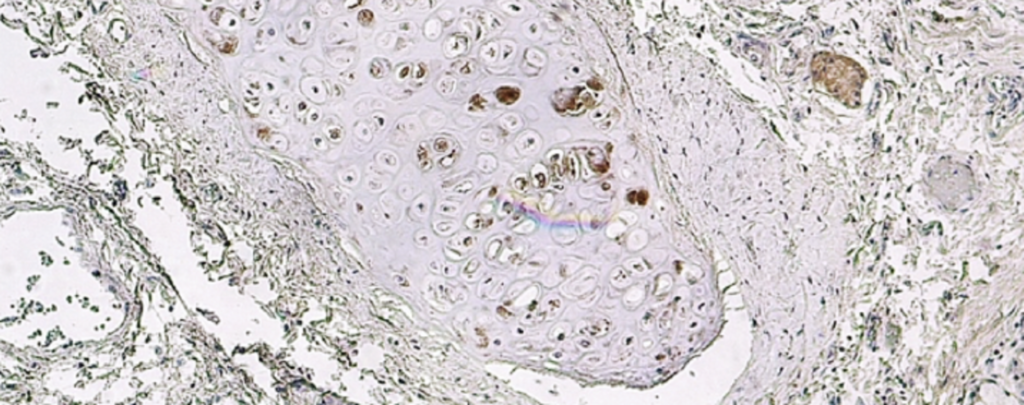
New unexpected evidence on the nature of lung damage in patients seemingly recovered from COVID-19 has emerged from an Italian-led study recently published in The Journal of Pathology.
The research, carried out by scientists from the University of Trieste, King’s College London and the International Centre for Genetic Engineering and Biotechnology (ICGEB) – an intergovernmental organization with its main laboratories located at Area Science Park in Trieste – has revealed traces of diffuse or focal interstitial pneumonia in patients who appeared to be virus negative but whose clinical status progressively worsened until they eventually died.
Specifically, the analysis of lung tissues revealed two aspects. Firstly, the lung pathology in the subjects studied was similar to that observed in acute COVID-19 individuals, with frequent cytological abnormalities, syncytia, and the presence of dysmorphic features in the bronchial cartilage. Secondly, the analysis showed the absence of viral traces in the respiratory epithelium, which is consistent with molecular test negativity, whereas the spike and nucleocapsid proteins (responsible for infection and virus replication, respectively) were detected in the bronchial cartilage and parabronchial gland epithelial cells of the patients examined.
These findings – the researchers concluded – show that SARS-CoV-2 infection can persist in the lung tissue significantly longer than suggested by PCR-negative tests. Whether the infected cells also play a pathogenic role in the so-called Long Covid remains to be clarified.
The study, coordinated by Mauro Giacca – Professor of Molecular Biology at the University of Trieste and group leader of the Molecular Medicine Laboratory at ICGEB – drew on Rossana Bussani’s many years’ experience in the post-mortem examination of patients who died at the Trieste hospital. The research group also includes Chiara Collesi and Serena Zacchigna.

